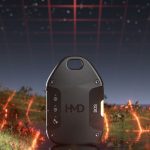CapFrameX, the frame times capture and analysis tool that originated from the Intel PresentMon tool with an overlay that Rivatuner Statistics Server, provides a new update, which is now version 1.6.9. This new update fixes bugs and adds some minimal integrations. The software’s most significant and crucial update is the experimental integration of support for the latest AMD Zen 4 architecture and Intel Sapphire Rapids processors.
CapFrameX updates to add new support for AMD Zen 4 and Intel Sapphire Rapids, along with the latest Intel Raptor Lake and Arc-A graphics
The PresentMon update to CapFrameX recently saw an update to add support for Windows 11 PCs. However, due to the operating system altering some of the few ETW events, the application was causing failures in detecting applications not utilizing DirectX 12.
CapFrameX’s sensor readings submitted the product IDs for AMD Zen4 and Intel Sapphire Rapids processors to the software. The team has also integrated sensor support for Intel Raptor Lake and Intel Arc-A graphics into the analysis tool application.
In the graphic below, CapFrameX displays the current sensor readings accessible right now.
CapFrameX includes new WebSocket URLs — two to be exact — allowing users to access anything from the sensor service so anyone can log specific sensor readings for extended periods without needing to do more significant benchmarks. The first shows the available sensors between the two URLs, while the second displays the selected ones.
Image source: CapFrameX
The option to change the size of the chart legend between 1.5 to 2 times the size is another addition to the newest CapFrameX tool.
Image source: CapFrameX
CapFrameX utilizes a stuttering analysis that analyzes how many frames spike during the benchmark. Before, the calculation required multiplying the average frame time with the configured stuttering factor. All frames times higher than that amount would be counted as a stuttering frame.
The stuttering chart also includes the frame times below stuttering, called LowFPS mode, which the team added to the frame time chart.
The visibility of both values showing the frame times, moving average, stuttering, and LowFPS is now displayed, which is demonstrated below.
Image source: CapFrameX
Lastly, there was a severe glitch that a user recently reported to the team that would delete a record file that was transferred using the “Move record(s)” command and followed by closing the folder selector. The problem has since been fixed, and users will not experience losing the record file. CPU thread load reporting also had errors, but that seems to be currently set.
Readers interested in downloading the new update to CapFrameX and finding out more information on the tool can find the info on the company’s website or GitHub.
The post CapFrameX Adds AMD Zen 4, Intel Sapphire Rapids, Raptor Lake, & Arc GPU Support In Latest Version by Jason R. Wilson appeared first on Wccftech.






